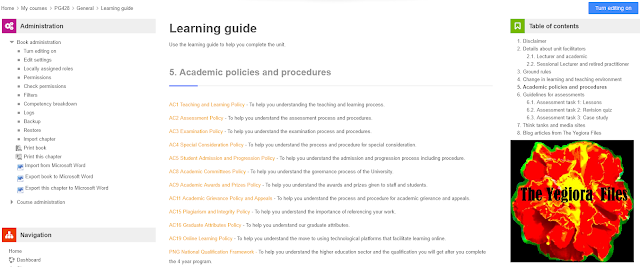Navigating Academic Integrity: A Guide to Divine Word University's Policy Landscape
In the pursuit of knowledge and personal growth, academic integrity stands as a cornerstone principle that guides every student, faculty member, and staff at Divine Word University. Deeply embedded within the institution's Plagiarism and Integrity Policy, academic integrity isn't just a buzzword – it's a commitment to trust, honesty, fairness, responsibility, and respect in all scholarly endeavours.
Defining Academic Integrity
At its core, academic integrity embodies the values that uphold the sanctity of learning. It calls for the avoidance of cheating and plagiarism, requiring a dedicated effort to maintain rigorous standards and honesty when preparing and presenting assignments. More than just a checkbox to mark, it's a mindset that demands responsible conduct, ensuring that information and ideas are generated and communicated ethically and transparently. The cornerstone of this concept is proper attribution, acknowledging the sources that contribute to the development of thoughts and ideas.
Policy Creation and Implementation
Divine Word University's academic policies are meticulously crafted by esteemed academics, including the Vice President Academic, Vice President Student Affairs, Vice Presidents Research and Higher Degrees, and directors of various divisions. This dedicated group of individuals ensures that each policy is well-rounded and comprehensive, addressing specific academic concerns.
The policy cycle is a multifaceted process that begins with formulation and then circulates for review and implementation. Quality Assurance Committee and Academic Board assessments culminate in policy approval. These policies are then made accessible through the staff intranet, reaching both staff and students.
The Categories of Academic Policies
To provide clarity and guidance, academic policies at Divine Word University are organized into distinct categories. These categories reflect the key areas of academic life:
Curriculum Development: These policies guide the creation and revision of academic programs, ensuring they align with the institution's standards and objectives.
Assessment: These policies establish best practices for assessment processes, safeguarding fairness and consistency in grading.
Teaching and Learning: Policies in this category detail various teaching methods and strategies, fostering an effective and inclusive learning environment.
Research: Highlighting the importance of research, these policies outline guidelines for conducting ethical and impactful research endeavours.
Academic Processes and Procedures: This category covers the broader spectrum of academic processes, establishing a framework for consistent and effective administrative operations.
Incorporating Policies into the Learning Experience
Recognizing the significance of academic policies in shaping students' academic journeys, many instructors, including myself, embed these policies directly into the learning experience. Within the learning guides for each of the six units I teach annually, I've dedicated a chapter titled "Academic Policies and Procedures." This chapter serves as a comprehensive resource, ensuring that students are well-acquainted with the policies essential for maintaining academic integrity.
Two Levels of Policy Implementation
I've come to realize that academic policy implementation can be effectively categorized into two levels: instructional and individual.
Instructional Level: At this level, academic policies are seamlessly integrated into the instructions provided to students. Guided by the Plagiarism and Integrity Policy, I make it my responsibility to educate students about academic integrity and plagiarism avoidance as they navigate program design and unit requirements. My assessments' instructions emphasize the significance of credible sources and accurate referencing, steering students away from unreliable sources like Wikipedia.
Individual Level: On an individual level, strict adherence to policies is maintained during academic functions such as assessment, teaching, research, and student progression. The Plagiarism and Integrity Policy mandates faculty members to explicitly educate students about proper techniques for acknowledging external ideas, while also detecting and addressing instances of academic misconduct.
Embracing Special Consideration and Equitable Decision-Making
One critical aspect of academic policies is the Special Consideration Policy. This policy emphasizes the principles of equity and academic integrity when addressing exceptional circumstances that affect students' academic performance. Ensuring that students follow the formal application process for special consideration, I maintain impartiality and consistency, providing equal opportunities for all students.
Navigating the Decision-Making Process
The implementation of academic policies isn't just about instruction and enforcement – it's also about making well-informed decisions. When reviewing special consideration applications, I meticulously evaluate each case, ensuring the accuracy and honesty of the provided information. Collaboration with medical professionals, ICT personnel, and student counselors enhances the quality of decision-making.
The Three Pillars of Decision-Making
Informing Students: Upon reviewing applications, I promptly communicate my decision to the students, keeping them informed of the outcome.
Stating Reasons: Transparency is crucial, so I provide clear reasons behind my decisions, enhancing students' understanding of the process.
Appeal Process: I also inform students of their right to appeal if they believe my decision is erroneous or if they disagree with my reasoning. The Academic Grievance Policy and Appeals serve as guides for students seeking to exercise this option.
Embracing the Journey
As you navigate Divine Word University's academic policies, remember that these policies are rooted in principles of wisdom, ethics, and knowledge. They don't just shape your academic experience – they prepare you for responsible conduct in future professional endeavours. By understanding, implementing, and respecting these policies, you're not only enriching your education but also shaping a foundation for success.
In the end, academic policies aren't mere rules to follow; they're the guardians of academic integrity, ensuring that every journey through education is fair, transparent, and transformative. So, embrace these policies as guides and allies on your path to growth, discovery, and excellence.
.png)

Comments
Post a Comment